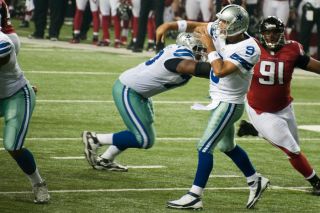
Sport and Competition
On the Seasonality of Getting to Second Base and More
Sports fans might want to rethink their praise for "clutch performers."
Posted October 30, 2013
Last night the first games of the NBA regular season tipped off, beginning a very brief period of alignment for American sports. This is the only time in three years that the NBA, NHL, NFL, and MLB seasons have overlapped, and the alignment in all likelihood will have passed, with the conclusion of the MLB's World Series, by tomorrow. Ordinarily there wouldn’t be quite so long a drought, but as the recent NBA and NHL lockouts delayed the opening days of their respective seasons in the past two years, here we are.

On this auspicious occasion, I would like to address something which is quite unrelated to the usual topics of my blog but which has been nagging me for most of my adult life—the fact that athletes who perform their best during the post-season are held in disproportionately high esteem by the fans and alleged experts. Note that I have listed the four “major” professional American sports leagues and will be using examples from the same. Most of the argument should apply in other sports, but examples that most readers are likely to be more familiar with should help illustrate my points.
Synopsis
The standard view is that there are some players who excel, as if by magic, during the most important games. To use only the most banal clichés, I am referring to the sort who is viewed as a “clutch player” who “stepped up his game,” “really turned it on,” and “took it to the next level” “when it mattered most.” Alternatively, there are numerous examples of players who “didn’t show up in the playoffs,” “caved under pressure,” and “couldn’t win the big one.” Most notable in this group are those players who otherwise had remarkably good careers (Ted Williams, Karl Malone, Dan Marino, and…I don’t really know hockey, but I assume the NHL has its equivalent poster boy). I wish to dispel this perspective. My thesis is as follows: 1) Small samples of noisy data are poor representations of the true state of the world. 2) Players should perform worse during the post-season. 3) Exceptions to Point 2 can be accounted for either by Point 1 or by something less laudable.
Small Samples of Noisy Data
Most of the glory or infamy an athlete receives for performing particularly better or worse than usual during the most important games is a function of luck. Technically speaking, the “luck” is a fortuitous combination of variables, each of which has a very small positive or negative effect on performance—and which collectively tend to be equitably distributed across players in the long run. The more complex the event, the more “luck” is involved. (Sprinters, for example, are not as subject to luck as are home run hitters and three-point shooters.) Over any small sample of games, the success of the individual players is much less indicative of how good they truly are than is their performance over a larger sample. That is, the data are noisy. And just as a coin can be tossed a few times in the air and come up heads each time without convincing us that something untoward is afoot, so too can a player, by fluke, have a brief run of good or poor games that happen to occur in the playoffs—or at any other point, as one notices when looking at statistics over the first few games of a season. Using MLB for example, there are always several players at that point with batting averages well over .400 and some “on pace” to hit over 100 home runs during the season. Along these lines, the supposed "hot hand" phenomenon in basketball has already been empirically debunked.1
Because “luck” is not reliable but athletic skill is, the player’s performance approaches a true indication of how good he actually is as the size of the sample (i.e., number of games) increases. Those who, for reasons of luck, happen to deviate substantially from their true quality during the highest profile games are subject to regression toward the mean. You’ll get a more accurate prediction of how well a player should perform during the final game of the World Series if you base it on how he did during the 162 game regular season than if you base it on how he did during his previous World Series games.
Why Players Ought to Perform Worse in the Big Game
When an underdog pulls off an upset, the game is judged retrospectively to have been a big game. If the Steelers beat the Patriots this weekend, fans of the game, and especially of the Patriots, will then be more likely to view that as having been a big game than if the Patriots, as expected, win just one more game against a team with a losing record. Ho-hum. In this respect, it is virtually guaranteed that the best players (whose teams are usually favored) will perform worse in “big games.” (Paging Joseph Heller.) But even if we define the big games a priori as the games of the playoffs or, especially, the championship game or series, it is unreasonable to expect that the players should do as well there as they have done up to that point.

Why? Almost by definition they are facing an especially good opponent in this context, and what is a good team, after all, but one that reliably causes its opponents to perform worse than they do against merely average competition? To the extent that the opponent is better than most of one’s previous opponents, one should be expected to perform worse when facing them. It is when this doesn’t happen that our suspicion should be raised.
Clutch Players and Why We Shouldn’t Admire Them*
Players who do genuinely perform better during the most important games, and do so in a way that cannot properly be explained as a fluke, are a curious target for fans’ admiration. If we have sufficient evidence to rule out the luck/fluke/small sample hypothesis to account for their timely success, what else can account for it?
It is rarely acknowledged, but nonetheless true, that a player who can be counted on to play better in the playoffs or during a championship game is, therefore, one who was not playing his best, was underperforming, was holding back, slacking off, etc. during the regular season. He was, in other words, relying on his teammates to do the grunt work of qualifying the team for the big game.
A player who is only an asset in the postseason is, as a rule, a liability, the equivalent of a volunteer who does a bang-up job handing out drinks to marathoners at the 26-mile mark after being asked to set up at mile 10. Allow him to be the runner in the metaphor, and he is the proverbial hare resting under the shade of the foliage while the tortoise makes up valuable ground. This is, in other words, exactly the type of player that you as an owner, general manager, coach, teammate, or, indeed, fan, should not want to have on your team.
Wallace and Baumesiter (2002) found, as their refreshingly transparent article title indicates, that individuals who score higher on validated measures of subclinical narcissism are the same folks who exert systematically reduced effort on a task until it appears that excellent performance would translate into great social acclaim.2 Otherwise, one can almost hear them thinking, what’s the point of working hard? (I’m looking at you, Allen Iverson.) This phenomenon, or something much like it, perhaps the substitution of laziness for narcissism, will be the most likely explanation (once we have ruled out chance) for someone’s tendency to consistently perform better in exactly the situation which ought to have the opposite effect. Alternatively, there is unlikely to be a selfish reason for a player to reliably and intentionally underperform in the post-season, so when we do criticize players who do worse than expected in these situations, that criticism is probably misguided—though there may be other reasons to criticize Alex Rodriguez.
Final Thoughts
There may yet be a single theory (again, other than chance) that can account for some players' consistently performing above their normal level in the most important games and others' consistently performing below their normal level in the same context, and it at least partially conforms to the popular conception I have sought to overturn. It can be derived from one of the oldest surviving notions in the field of psychology, the Yerkes-Dodson law.3 What follows from the law is that individuals achieve optimal performance under conditions of moderate arousal. In other words, one does best at tasks that are neither boring nor so exciting that one can't remain calm enough to properly execute the required motor skills.
If in fact this is the appropriate explanation, it could account for some players' tendency to "choke" under pressure. I suspect, however, that all the stages at which one has to succeed to eventually make it as a professional athlete do a good job of screening out those people who would find the championship game setting too physiologically arousing. On the other hand, apart from narcisissm, it might be the case that for many of the most skilled athletes (something like the top 10% of the top 1% of the top 1% of the top 1%) ordinary regular season contests may be insufficiently arousing to yield optimal performance, in which case it's still true that they aren't performing their best during these games, but a fan might feel somewhat more forgiving if the cause doesn't involve an explicit decision to slack off.
References
1 Gilovich, T., Vallone, R., & Tversky, A. (1985). The hot hand in basketball: on the misperception of random sequences. Cognitive Psychology, 17, 295–314.
2 Wallace, H. M., Baumeister, R. F. (2002). The performance of narcissists rises and falls with perceived opportunity for glory. Journal of Personality and Social Psychology, 82(5), 819-834.
3 Yerkes, R. M. & Dodson, J. D. (1908). The relation of strength of stimulus to rapidity of habit formation. Journal of Comparative Neurology and Psychology, 18, 459-482.
*Millions of people before me have already made the point that we revere professional athletes more than we should, relative to people who are largely unknown but genuinely praiseworthy**. I concede this, but my point above is why we should not revere the so-called clutch players in particular.
**For starters, try Irena Sendler, Ts'ai Lun, Bayard Rustin, Rosalind Franklin, Andre Trocme, R.A. Fisher, and Aung San Suu Kyi.
Dr. Scheyd can be followed on Twitter.



